When I first decided that I wanted to relocate to Japan from the US, I unwittingly embarked on a lengthy journey of preparation and research. The issue was, I wasn’t entirely certain about the process, and uncertainty loomed over every step of the way.
Questions swirled in my mind: What visa do I need? How do I find accommodation? What are the cultural nuances I should be aware of? It was a daunting prospect, navigating through the intricacies of moving to a new country, especially one as distinct as Japan.
So, how difficult is it to move to Japan, you might wonder. This question became a constant companion as I dived deeper into the logistics and realities of uprooting my life and planting it in a land renowned for its rich history, vibrant culture, and unique societal norms.
One of the best ways to explore Tokyo is to visit the local areas and immerse yourself in the local culture. If you want to explore local areas, we have created scavenger hunt adventures personalised to your interests, filled with fun facts, clues and puzzles. If you’re curious, you can check out the games here! Check out the Flip Japan Games here! |
Here are more useful resources for settling in Japan: step-by-step guide to moving to Japan, top 5 jobs for foreigners in Japan, best places to live in Japan, how much it costs to live in Japan, and finding out if you will be happy in Japan.
Why I Moved to Japan
My family and friends were aware of my long-standing desire to reside in Japan. It just felt like the natural path for me; having previously interned in Chiba and graduated with a Japanese bachelor’s degree. Thus, in the first semester of my final year in college, I began seeking employment in Japan. After securing an offer at the Boston Career Forum, I found myself on a plane within three months.
Whenever I encountered someone unaware of my background or aspirations, their initial query invariably revolved around, “Why did you opt for Japan?”
That’s when it dawned on me that people are genuinely curious about the motivation behind such a decision. Why choose Japan? What allure does it hold for you? What makes it worthwhile to leave behind your former life for a new one?
After all, when you’ve spent your entire life in one place, it becomes intertwined with your identity, making it challenging to envision a world beyond your current surroundings. However, I maintain that making that leap to move to Japan ranks among the best decisions I’ve ever made, and despite the challenges, living here now is immensely rewarding.
How I Prepared to Move to Japan

I came to Japan to work, at least that’s what it says on my visa. But besides that, I decided to make the move so I could break the everyday cycle of my daily life, which had grown too comfortable for me.
In preparation for my eventual move to Japan, I watched Japanese travel videos and enrolled in a Japanese language partner program at my school. Through that preparation and dedication to my goal, I was able to make the transition when it was time. My Japanese was good enough that I could apply for jobs other than teaching English, and I had prior experience in offices that benefited my CV.
Preparing to move to Japan was a meticulous process filled with anticipation and challenges. As I embarked on this journey, the question lingered: How difficult is it to move to Japan? Despite uncertainties, my determination fuelled meticulous preparation, blending cultural immersion with linguistic proficiency. This groundwork, alongside prior professional experiences, facilitated a smoother transition. Yet, the arduous pursuit of suitable employment underscored the realities of relocation. So, how difficult is it to move to Japan? The journey was riddled with complexities and required unwavering perseverance.
Was the Moving Process Difficult?
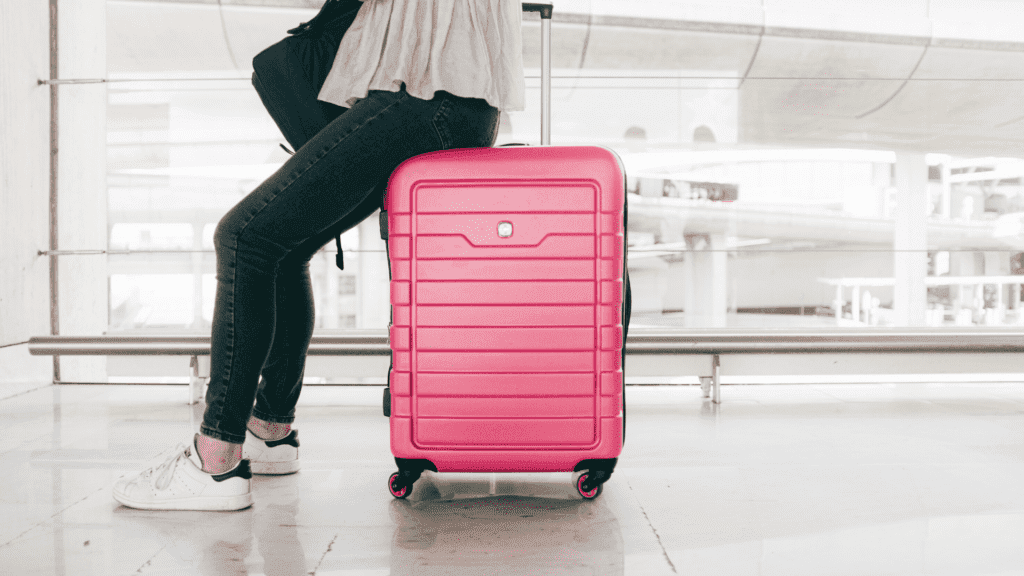
Let’s face it: despite globalisation and the widespread use of the Internet giving us access to so much information, many people have only a surface level of knowledge when it comes to Asian countries. As a Taiwanese-American living in the States, it never failed to shock me how many people thought I was Thai because I told them my parents were from Taiwan.
One of my Caucasian friends, who has lived in Japan for five years now, would always tell me how her family thinks all East Asian countries speak Chinese, and how they would ask her to speak it when she returned to the U.S..
Needless to say, some people don’t quite understand the appeal of going to East Asia or even what it’s like. It becomes hard to justify your decisions when you pick an unconventional route compared to the typical life of finding a job within your own country. And this is where your first hardship can appear, as some people will not support your choice to move to Japan.
Opening a Bank Account and Getting a Phone

Although it seems insignificant to worry about what other people think, it truly is the reason behind the fear that so many people have when they are considering moving to a foreign country. Sometimes knowing that you could have an easier life if you stayed back makes it harder to cope with living somewhere else.
An example of this is, during the process of moving to Japan, I tried to open a bank account so I could receive my salary from work. The local bank told me I needed a Japanese phone number to open an account. But when I went to phone stores, they told me I needed a Japanese bank account to buy a phone.

Eventually, I found a store that would sell me a phone and Japanese phone number. Then, I went back to the bank and filled out all the paperwork. I thought this would be the end of it. But, no, right at the very end, the bank asked for me inkan (Japanese seal used as a signature) to verify my forms. I had to leave the bank and make an inkan (which took the store about half a day). I went back to the bank the next day and finally opened my account.
Why did I have to struggle for three days to open a bank account in Japan when I could have done it within a few minutes back at home? These kinds of thoughts are what make the moving process difficult in Japan, as you’ll find yourself having a tough time doing even the simplest of things.
Adapting to the Japanese System

More than the moving process itself, the adaptation into Japanese culture is what most people find difficult. Making friends, understanding social norms, and integrating yourself into the culture are things that will take time.
Something I couldn’t understand about Japan was how many official buildings close so early in the day. City halls and banks usually shut their doors around 4 or 5 in the afternoon here, and that’s very inconvenient for the average corporate employee whose workday ends at 6 or 7 in the evening (a fair number are expected to work overtime till even 9 or 10 at night). Even if you’re willing to sacrifice a weekend to go, tough luck, some of them open only on weekdays.
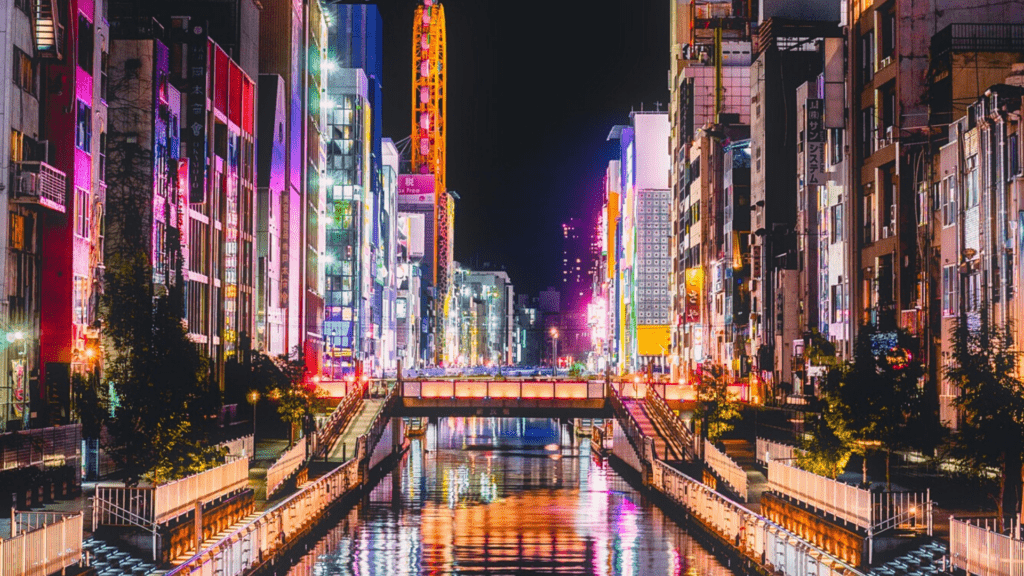
I had switched apartments and was required to unregister my previous address, and register my new one, at city hall. I couldn’t find any time to go due to my job, and it frustrated me how troublesome this small task became.
With time, I eventually learned that the system in Japan is influenced by the typical Japanese family where the father will go to work in the day, and the mother completes all the mundane tasks like paperwork. While unfamiliar within my own culture, you begin to have perspective on other ones.
After living in Japan, you’ll see why things are how they are, and gain a better understanding of the lifestyle. Then you’ll realise all the trouble and hardships were worth it, because you’re learning and exploring things about the world, as well as yourself.
If you keep an open mind and are willing to step out of your comfort zone every once in a while, you’ll be able to make it in Japan. Read more about it in my blog post, 7 Traits of Someone Who Will Be Happy In Japan.
The Cost of Flying to Japan

When making the physical move to Japan during the process, you’ll have to worry about your airplane ticket and housing.
For airfare, flights with at least one transfer will be significantly cheaper than direct ones. Certain airlines are also much cheaper than others, but unfortunately, the better ones don’t fall into this category. If you’re willing to sacrifice a little leg room, you’ll save hundreds of dollars.
Personally, I flew with Air Canada to Haneda Airport. I’d booked my flight one month in advance and it had a layover in Toronto. The one-way ticket cost me around USD$650.
The Cost of Housing in Japan

As for choosing housing during the process of moving to Japan, I decided to go with a furnished apartment using an apartment searching website called ICHII Corporation. There are many other options such as unfurnished one-room apartments, pet-friendly apartments, and even rooms with tatami flooring.
You have the choice of living by yourself or with other people as communal living is also popular within Japan. Along with that, you can find single family homes in the more residential parts of Japan, such as Chiba. Check out our guide on where to find the best places to live in Japan, as well as my experience in a share house.
As for housing, first, decide if you’d like to live alone or with others. Living alone will definitely cost more but you’ll have the entire space to yourself. Living with others—in share houses, for example—will be significantly cheaper, and you’ll get to interact with others.
Getting Your Own Apartment
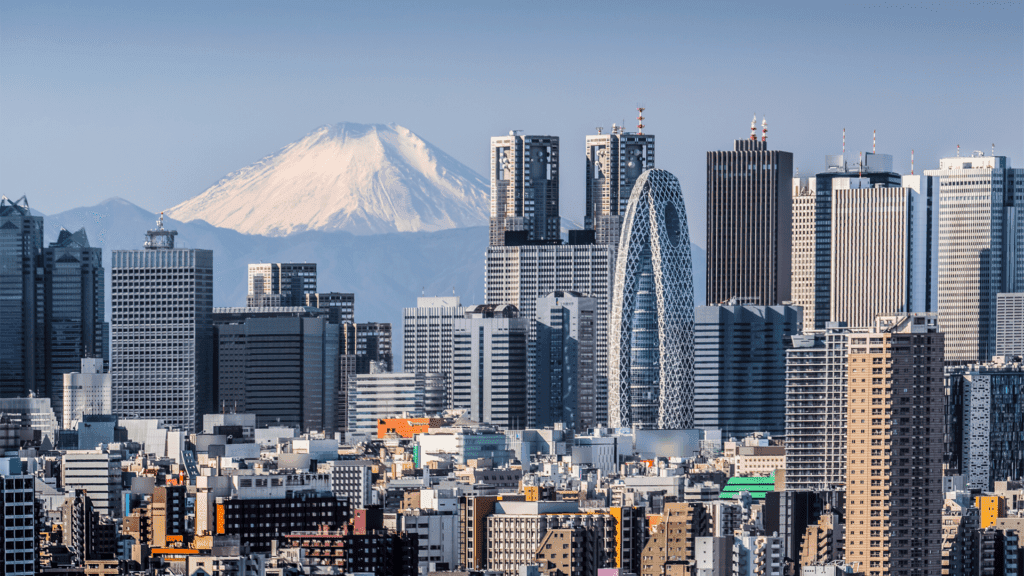
As mentioned above, when I first moved to Japan, I decided to live alone. I used ICHII Corporation, an apartment-search website, and found a furnished apartment to move into. They have filters on their website that allow you to adjust your preferences and requirements, such as “unfurnished”, “pet-friendly”, and even “tatami flooring”.
A furnished apartment is always more expensive than an unfurnished one, but they’re also a lot more convenient for people who decide to come to Japan on short notice. I paid 145,000 yen per month (USD$1,350) for a 20 square meter studio apartment, which is a lot. However, it was located in Nihonbashi, where you have easy access to any part of Tokyo. Considering that and how I didn’t have to worry about shopping for furniture or amenities when I first arrived in Japan, it was the best option for me.
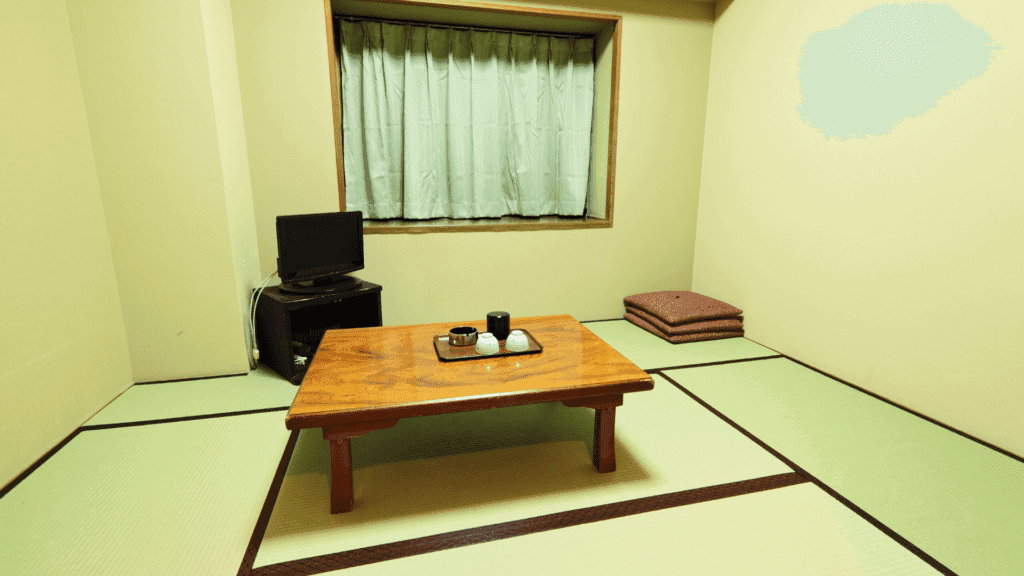
Be warned: many standard Japanese apartments come with initial fees like key money (reikin, 礼金), lock replacement fees (kagi kōkan dai, 鍵交換代), and more. These fees, in addition to the first month’s rent, can cost you as much as three months’ worth of rent just to move in.
You’ll also need to consider which area of Japan you want to live in. Factors such as the cost of living will vary depending on the area.
Cost of Transportation in Japan

Perhaps the sneakiest costs that build up are not groceries or even shopping, but transportation. Within Tokyo, there are different rapid transit systems (e.g., Japan Railway, Tokyo Metro) that each have dozens of train lines. Transferring trains from one system to another significantly raises the fee, and you should make sure you know how much you’ll need for a ride.
For example, as you can see from the Google Maps search below, there are two train routes from Asakusa Station to Shinjuku Station, and both take about 29 minutes, but one will cost you 336 yen (USD$3.10), and the other 272 yen (USD$2.50). This is because the more expensive route requires a transit from the Tokyo Metro-operated Ginza Line to the East Japan Railway-operated Chūō Line. The cheaper route also includes a transfer between two lines but both lines are operated by Toei Subway.
If you aren’t familiar with train operators in Japan, you may mistakenly and continuously ride the more expensive routes, and while the cost differences don’t seem like much, they add up over long periods of time.
Many companies will compensate their employees for transportation fees every month. However, if you live somewhere a bit further out, such as Chiba, you can often hit the compensation limit if you’re commuting to Tokyo as the cost builds up quickly everyday.
On top of all of this, you’re bound to be going out to eat and sightsee, which will raise your daily spending even more. Despite that, Japan isn’t an overly expensive country, and there are many places that offer cheap food and services.
Japan also has many second-hand shops for clothing and furniture. With a little bit of research, it is possible to live frugally. As long as you stay aware of your everyday costs, you’ll be able to live with some money to spare.
How to Improve Your Chances of Moving to Japan

Ever since coming to Japan, I can’t stop wanting to bring my friends here and show them how amazing this country is. There are cons, as there are with any place, but Japan has a charm to it that draws people in.
The food, culture, and history of Japan is all so rich, and there’s so much perspective you can gather from living in a foreign country. Even with other East Asian countries, Japan is so different that one wouldn’t think it’s only two hours away from South Korea by plane.
Now, if you’ve done your research and are fully convinced that this country is where you want to settle, here are my tips for improving your chances of moving to Japan:
Learn Japanese

I highly recommend that you try to learn Japanese to be able to fully enjoy what the country has to offer. It will take a while to fully grasp; even with my level that landed me a job at an international company, I struggle to have basic conversations every now and then.
Additionally, if you learn the language, you instantly become an asset to any Japanese company as many places are trying to recruit bilingual employees. There are many recruiters looking for a competent speaker in Japanese and another language.
Finding a Company with an International Mindset

Many international companies have stable branches here in Japan, such as Amazon, Indeed, and Apple. As Japanese work culture can be exhausting, many companies now adopt an international mindset regarding their offices and practices, and they encourage non-Japanese people to join them.
A great example of this is when I learned from my branch manager that they had specifically gone to the US to look for new hires as they wanted to bring a new culture to the office.
The typical Japanese attitude is to always listen to your senpai (先輩, senior in rank) and to be respectful, even if that means suppressing what you really think. They needed more people to speak their minds and be straightforward. Presumptuous of them to think that all Americans are like that, but it goes to show that Japanese culture is changing slowly. More foreigners are joining the workforce, and Japan is starting to realise the benefits of having other cultures mix with their own.
Of course, you can also come to Japan without speaking Japanese, and many people begin their studies once they’ve arrived.
A Final Word on the Challenges Related to Moving to Japan
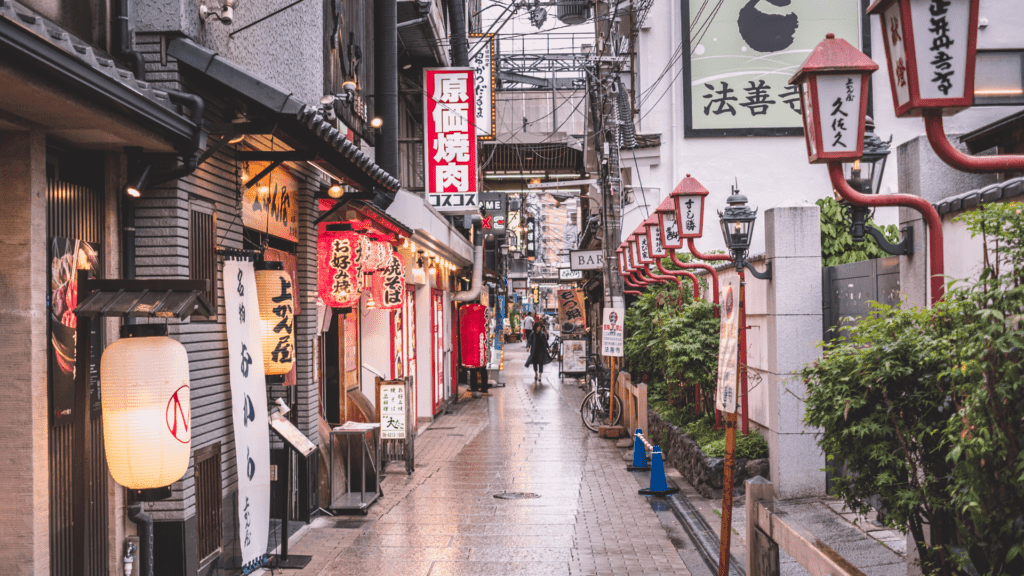
Long story short, I don’t think moving to Japan is that difficult as long as you have a strong desire and you take the time to prepare. It’s a country full of opportunities, and there are so many programs out there that are eager to onboard people from overseas. If you’d like a detailed explanation of some of these programs, check out my step by step guide on how to move to Japan.
For me, all I knew was that I wanted to come to Japan. I wasn’t quite sure of what I wanted to do here, or what the future would hold for me. Despite all that, I created a goal and set out to make it happen. Even though there may have been some bumps along the way, I was able to finally make the move, and so can you!
So, what are you waiting for? Start the process of moving to Japan. Though you may face challenges in the way, don’t give up.
See you in Japan!


Trackbacks/Pingbacks